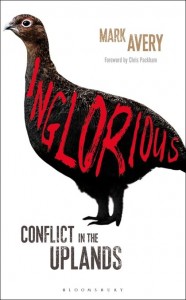 There’s a long review of Inglorious in October’s British Birds, by Chris Smout.
There’s a long review of Inglorious in October’s British Birds, by Chris Smout.
‘impassioned’
‘singularly well-informed’
‘the evidence he [that’s me] marshals for the deleterious effects of driven grouse shooting is impressive’
Where the good professor parts company with me is in my solution to the problems of driven grouse shooting, which of course, he is free to do. He regards banning grouse shooting as ‘extreme’ and prefers a licensing system which I would describe as ‘feeble and doomed to failure’ – I’ll come back to this one day next week.
But thank you for the review!
Elsewhere in this month’s BB there is the report on rare birds in Great Britain in 2014 – for me, the least interesting article of the whole year each time it comes round but I recognise it will be the favourite of many. I flick through the pages looking at the photos and mentally say ‘I don’t know what that is’ over and over again – I did identify the Snowy Owl correctly!
I always read the News and Comment section with enthusiasm and pleasure and was pleased to see a photo of two of my friends heading the section – Chris Packham and Henry Hen Harrier.
BB is the journal of record for the intelligent birdwatcher – it’s a must-read every month.
[registration_form]
There is spectacular, body strewn, trail reaching right back to the first Environmentally Sensitive Areas of the terms of grant schemes, licenses, whatever being watered down to the point where to the casual observer they look useful but in practise are below the threshold to do any good. The debate over Entry level Stewardship is just the latest in many. Why won’t a Grouse licensing scheme go the same way ? And even if it doesn’t it is crystal clear that Ministers will never give Natural England a free hand in enforcing any license scheme – Walshaw Moor has killed that prospect before there are even proposals on the table. A model that could work is the Forest Stewardship Council where economic, environmental and social ‘cells’ sit down together to agree the standard – which is then policed by independent bodies who, because they generally are part of much bigger surveillance organisations, have a vested interest in applying standards without fear or favour.